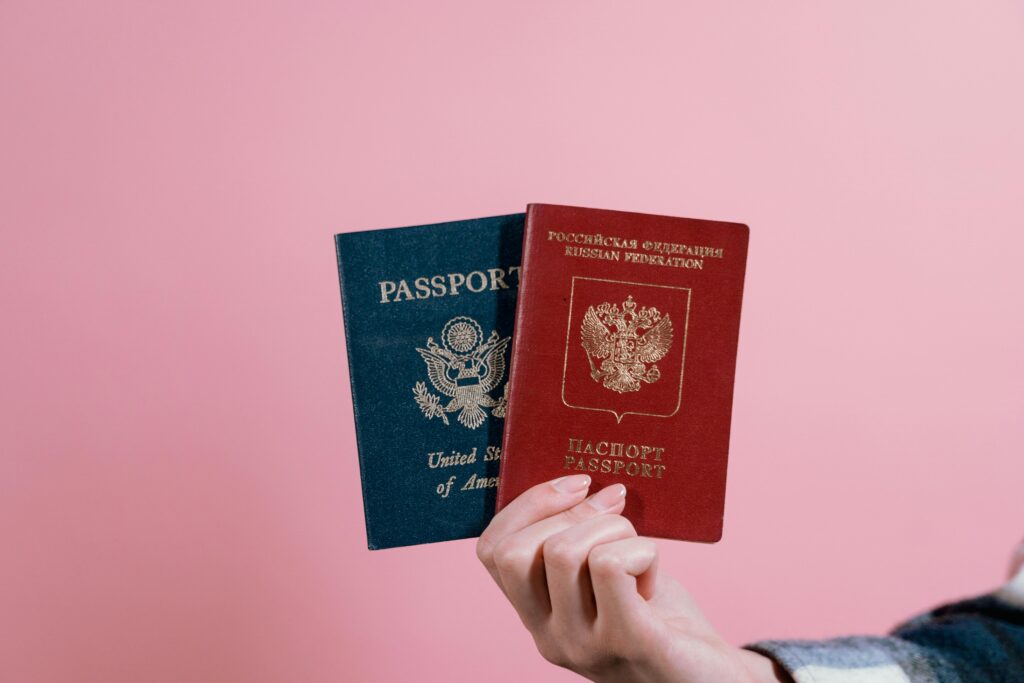How to Settle in the USA After Arriving for Studies
Introduction:
Studying in the United States offers a wonderful chance with mixed feelings of expectation and difficulty. Moving to a foreign country requires adjusting to a different culture, balancing schoolwork, and creating a comfortable living. This guide will help you navigate the process of settling in the USA after arriving for your studies, ensuring a smooth and fulfilling experience.
Pre-Arrival Preparations
Good preparation will help the change in the USA to be much smoother.
Organizing Your Documentation
Ensure that your passport, visa, and I-20 form are valid and up-to-date.
Carry copies of your offer letter, academic transcripts, health insurance, and proof of financial support.
Keep digital and physical copies of all essential documents for easy access.
Financial Planning
Make sure your current account works internationally or open an international student bank account.
Carry a mix of cash and credit/debit cards for initial expenses.
Read about exchange rates and know how expensive living is in the place you have selected.
Health and Travel Insurance
Purchase comprehensive health insurance before arriving, as medical expenses in the USA can be high.
Keep a first-aid kit and prescription medications with you during your journey.
Familiarize Yourself with the DestinationResearch the city and university, including weather, transportation, and expensive and nearby amenities.Learn about local laws and cultural norms to avoid misunderstandings
Initial Steps After Landing in the USA
The first few days are very important in starting your life in the United States. Here are the essential tasks to focus on:
Immigration and Customs
Upon arrival, give your documents to immigration officers and confirm that your passport is properly stamped.
Safeguard your I-94 form, as it serves as a record of your entry.
Accommodation Setup
Before you arrive, make arrangements for temporary accommodations. University dorms, hostels, and short-term rentals are all possible options.
Once settled, explore long-term housing options such as student housing, apartments, or shared accommodations.
Ensure that the accommodation is close to your university and easily accessible by bus or train.
Getting a Local SIM Card
Purchase a local SIM card to access affordable calling, texting, and internet services.
T-Mobile, AT&T, and Verizon are among the major service providers. Compare plans to find the best match for your needs.
Setting Up a Bank Account
Open a student bank account with banks like Bank of America, Chase, or Wells Fargo.
Provide any necessary documentation such as your passport, visa, and proof of residence.
Adapting to University Life
University life in the USA can be overwhelming at first. Here’s how to adapt effectively:
Orientation Programs
Attend your university’s orientation to familiarize yourself with the campus, resources, and academic expectations.
Use this opportunity to meet other students and faculty members.
Academic Adjustment
Understand the grading system, course structure, and professor expectations.
Make use of libraries, study groups, and academic advisors to excel in your studies.
Time Management
Create a balanced schedule that accommodates your classes, assignments, and leisure activities.
Use apps like Google Calendar or Notion to stay organized.
Building a Social Network
Establishing a social network can improve your entire experience and make you feel more at home.
Joining Clubs and Organizations
Join student organizations, cultural clubs, or sports teams to connect with others who share your interests.
Volunteering or attending university events can also expand your network.
Connecting with Local Communities
Look into local cultural or religious groups for a sense of community.
Use platforms like Meetup to find social events tailored to your interests.
Building Professional Relationships
Attend workshops, career fairs, and networking events hosted by your university.
Develop connections with teachers and classmates who can help you both personally and professionally.
Managing Finances Effectively
Budgeting
Track your expenses using tools like Mint or Pocket Guard.
Allocate funds for rent, groceries, transportation, and leisure activities.
Part-Time Work Opportunities
International students can work up to 20 hours per week on campus during academic sessions.
Check your eligibility for Optional Practical Training (OPT) or Curricular Practical Training (CPT).
Scholarships and Financial Aid
Research scholarships, grants, or financial aid offered by your university or external organizations.
Apply early to increase your chances of securing funding.
Navigating Everyday Life
Transportation
Use public transportation like buses, subways, or trains to save money.
Consider apps like Uber or Lyft for convenient travel.
Grocery Shopping
Find affordable grocery stores like Walmart, Target, or Aldi.
Explore local farmers’ markets for fresh produce.
Staying Healthy
For medical requirements, enroll with a local doctor or use the health services provided by your university.
Maintain a balanced diet and exercise regularly to stay fit.

Overcoming Challenges
Homesickness
Stay connected with family and friends through video calls or social media.
Decorate your living space with personal items to make it feel like home.
Cultural Differences
Embrace the cultural diversity of the USA and be open to new experiences.
Learn basic etiquette and communication styles to build better relationships.
Academic Pressure
Seek help from university counseling services if you feel overwhelmed.
Join study groups or peer tutoring sessions to manage academic stress.
Preparing for the Future
Career Development
Build a professional resume and LinkedIn profile to showcase your skills.
Apply for internships or co-op programs to gain hands-on experience.
Exploring Visa Options
Understand the different visa categories for staying in the USA after graduation, such as H1-B or OPT extensions.
Consult an immigration lawyer or university advisor for guidance.
Conclusion
As an international student in the United States, you must plan ahead of time, be able to change and have a good attitude. You may make this experience transforming and enjoyable by taking proactive measures to arrange your life, develop a support network, and stay focused on your goals. Remember that every problem presents an opportunity to improve and make the most of your time in the United States.
1 thought on “How to Settle in the USA After Arriving for Studies”